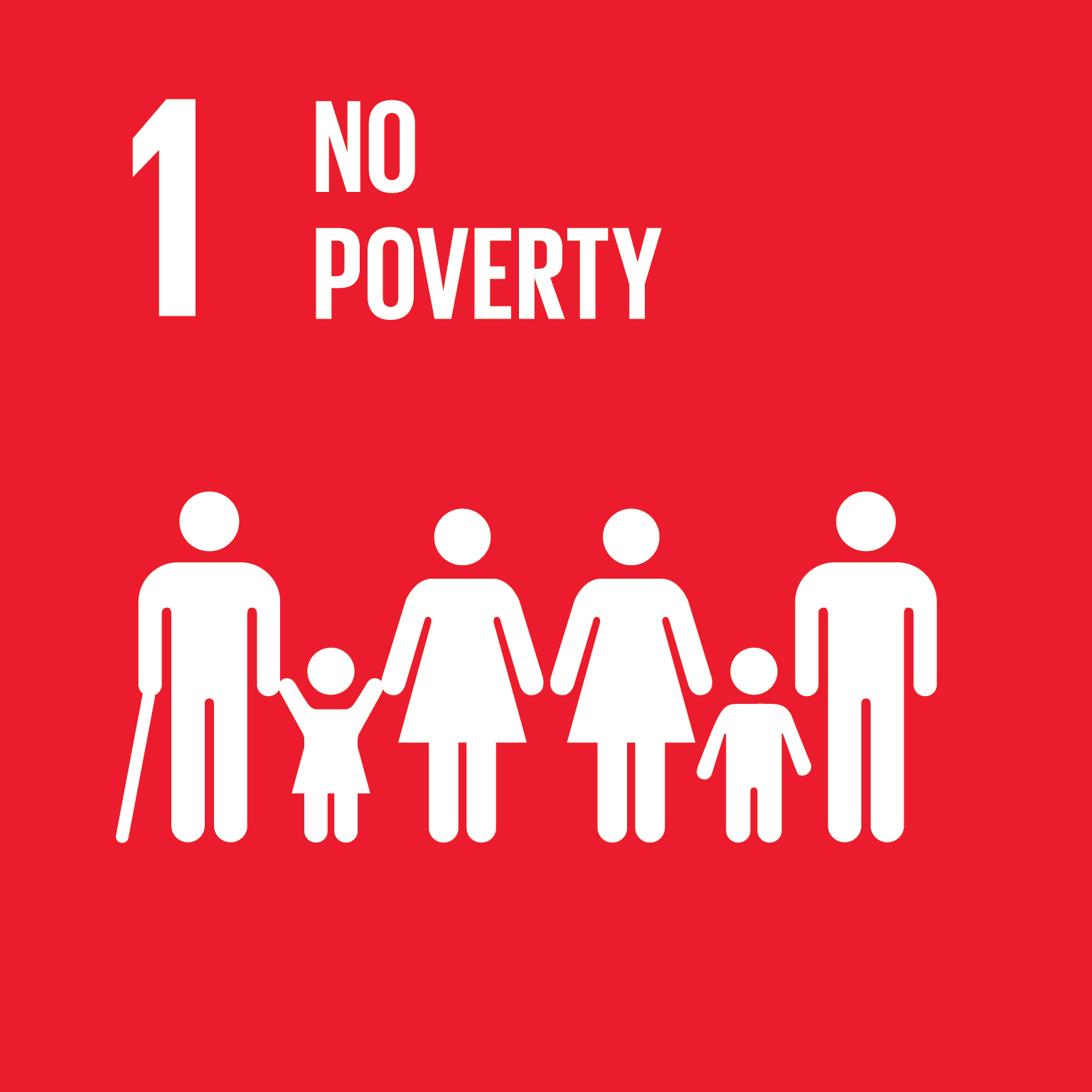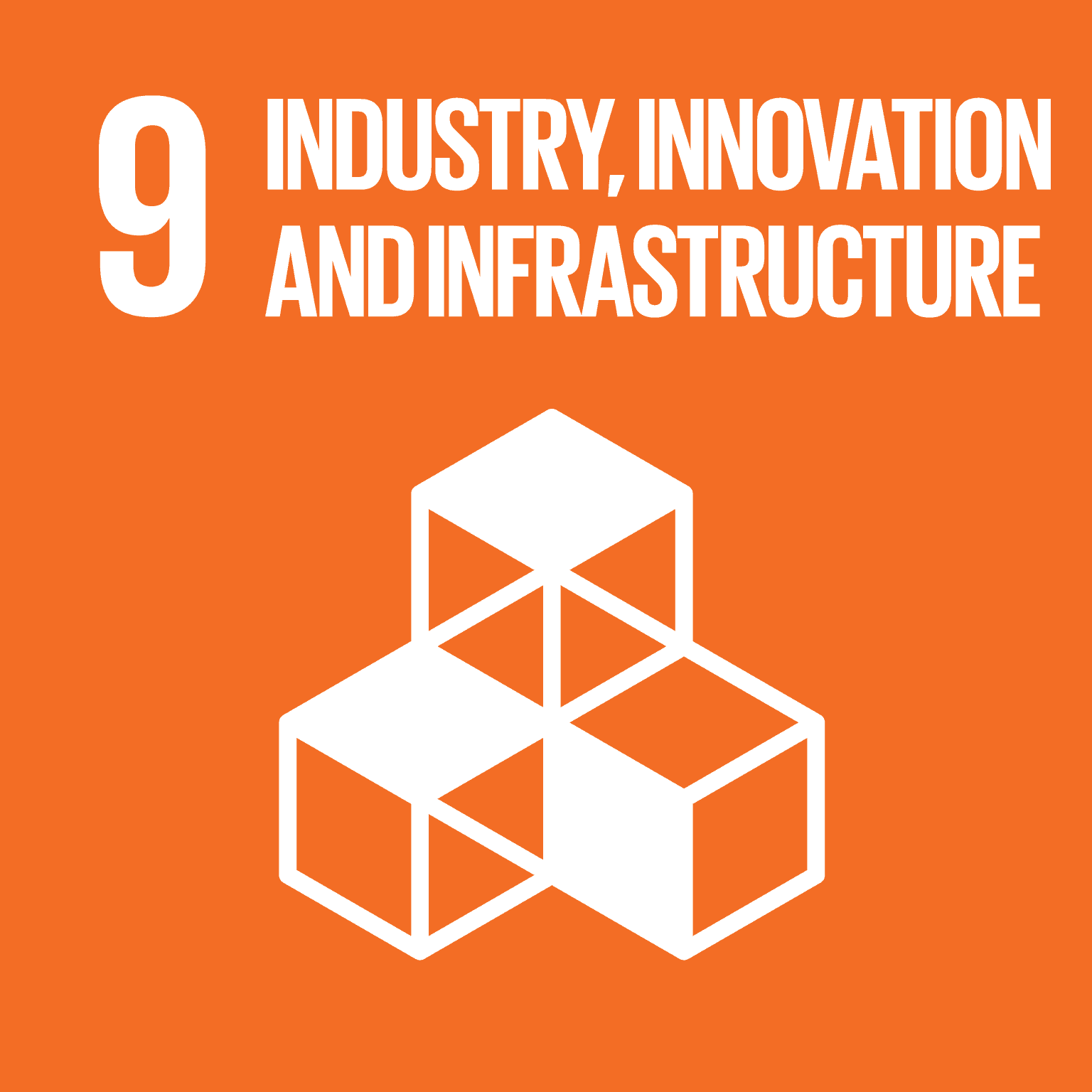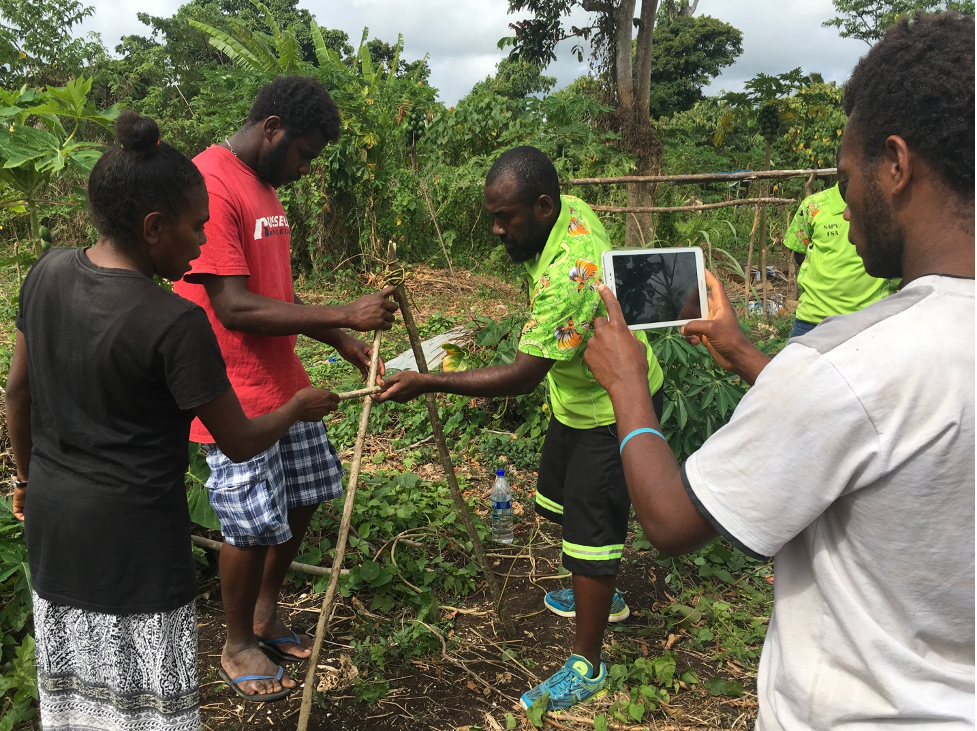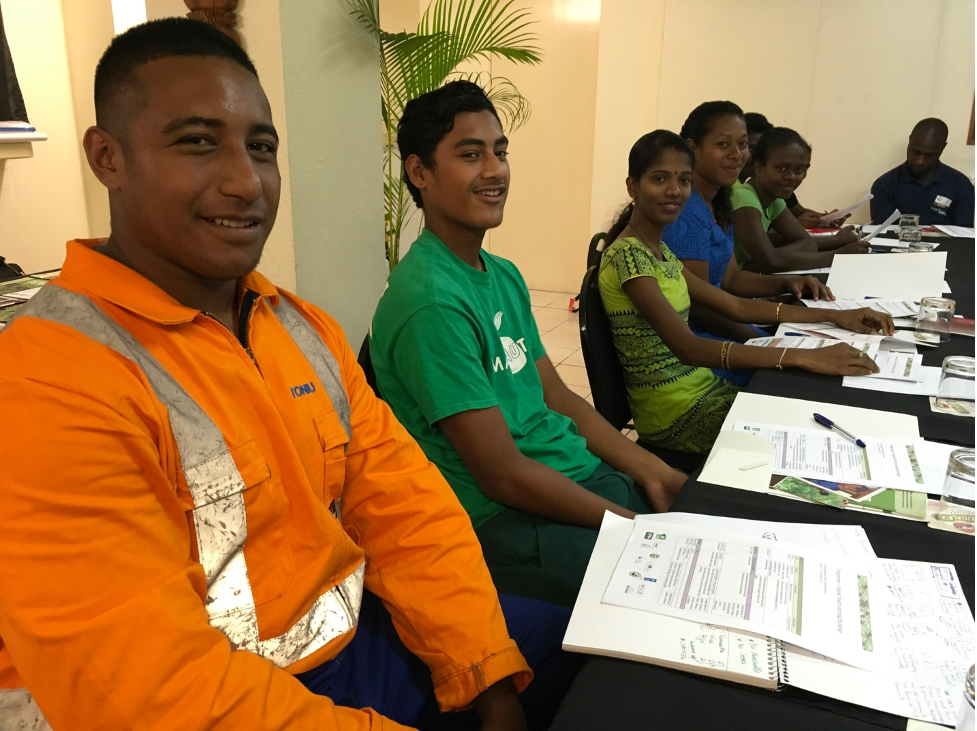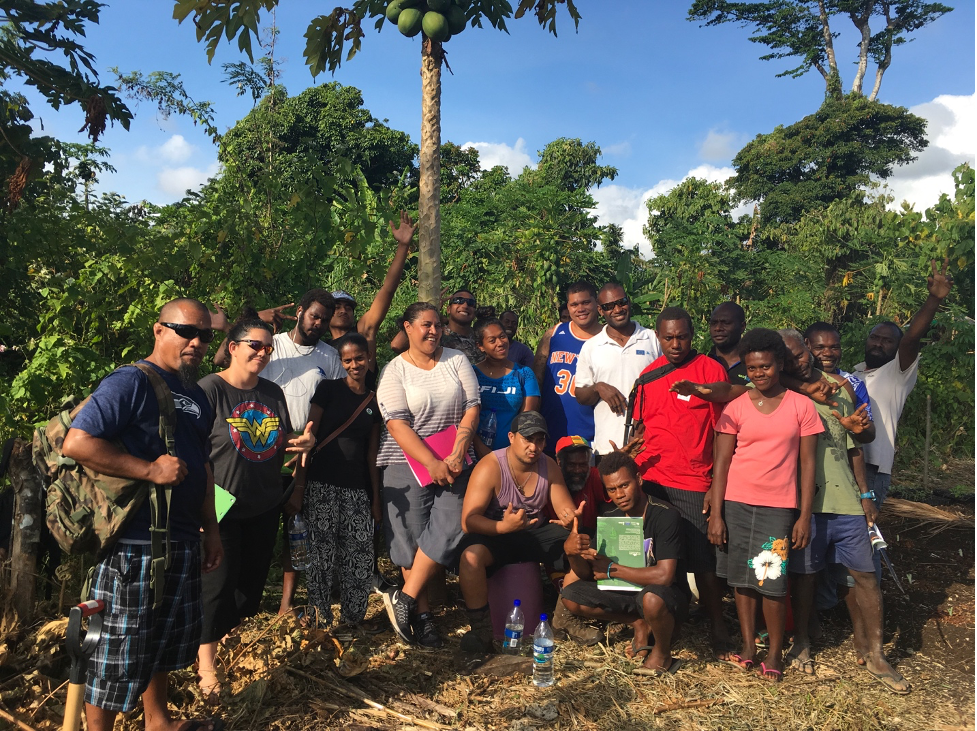A Farm-to-Table Value Chain Approach
Creating employment for youth in organic farming in Fiji and Vanuatu
Challenges
Young people make up a significant proportion of Pacific societies, with more than half of the population being under the age of 25. However, average youth unemployment rates in the region are extremely high at 23 percent (ILO, 2013) compared to a global average of 12.6 percent. Youth in the Pacific are six times less likely to secure jobs than older workers (ILO, 2013). In 2012, 44.3 percent of young people in Fiji were not in the labour force (156,692 from a total youth population of 353,444). In Vanuatu, government estimates showed that less than 700 new jobs were being created while about 3,500 students leave school each year, thus leaving 2,800 educated youth without jobs.
While youth unemployment is increasing, agriculture production is decreasing. The Pacific is also facing an aging farming population, with the average age of a Pacific farmer being around 55 years old. Agriculture is not generally seen as a viable career option for youth. At the same time, there is a lack of access and support to create an enabling environment for young people to participate in agriculture.
Thus, a need exists to strengthen the profile of agriculture as a viable profession for youth, highlighting the importance of food production, food security and health for the future. This must include promoting the many facets of the agricultural sector, its importance to the economy and its income generating possibilities. For young people to engage in agriculture as a career option, they must be supported to develop appropriate skills, gain access to land and credit and have control over returns from their activities.
Towards a Solution
The Farm to Table Project assists youth in targeted communities in Fiji and Vanuatu to take up organic farming and supply value chains, directly from the farm to a consumer’s table. This project contributes to improved self-reliance and employment opportunities, reduced food imports and improved nutrition. Designed as a regional project covering multi-country activities, the project facilitates exchanges of knowledge and learning through South-South cooperation and innovation. The project brought about the following changes:
- Created employment opportunities for youth in organic agriculture through a value chain approach utilizing public private partnerships within the key economic sectors of agriculture and tourism.
- Enabled scaled-up engagement by youth in organic farming to be sustained on a commercially viable basis through the establishment of a value-added processing facility that provided skills training, knowledge transfer and employment for youth.
- Strengthened the institutional capacity of local organizations, including the Fiji National Youth Council, to effectively meet the needs of youth seeking information and employment in the organic agricultural sector. The active engagement of a social enterprise (FRIEND in Fiji) and private sector enterprises (Tanna Coffee, Lapita Cafe? and Nasituan in Vanuatu) in the supply chain to buy produce strengthened the delivery of the overall project performance and ensured sustainability of the programme outcomes.
- Improved information and knowledge sharing across the Pacific region, contributing to increased employment opportunities for youth in organic agriculture value chains. Ten knowledge products were produced by FRIEND in Fiji and five products were developed by the Farms Support Association in Vanuatu.
Particularly, the project focused on organic certification of Participatory Guarantee System (PGS) Groups. In Vanuatu, more than 3,300 farmers were certified, three organic products certified and 3,300 PGS groups established. In Fiji, 330 farmers were certified and five PGS groups were established. A new organic restaurant was opened by FRIEND in Fiji. The five PGS groups in Fiji as (suppliers) are now linked to FRIEND in Fiji as the purchasing client in the supply chain. FRIEND in Fiji and the Farms Support Association in Vanuatu created databases of organic farmers, registered PGS groups and produced Food Processing Guidelines. This approach helped with documentation and peer reviewing processes for certification of organic farmers within the supply chain, ensuring the sustainability of organic farming production.
The project has spurred youth from the Pacific to learn from each other. The UNDP Pacific Centre, in collaboration with the Secretariat of the Pacific Community and the Pacific Organic and Ethical Trade Committee, organized workshops to engage youth in organic farming and facilitated knowledge sharing and exchanges. Youth farmers from Cook Islands, Fiji, Marshall Islands, Niue and Vanuatu participated in a Pacific Organic Youth Farmers Learning Exchange and engaged in demonstrations and peer learning. The practices demonstrated by youth farmers were documented and shared online. This contributed to horizontal exchange, cooperation and participation among countries.
The project contributed to policy changes in both Fiji and Vanuatu. The Government of Fiji began drafting an organic farming policy, supported by the project and its stakeholders, including organic farmers, PGS farmer groups, partner non-governmental organizations, UNDP and others that had taken part in consultations on the draft policy. The Vanuatu Government is also drafting an organic farming policy, led by its Department of Agriculture, with support also from those stakeholders, such as organic farmers and the private sector, that had taken part in the consultations process.
The Farm to Table Project directly contributed to SDG 8 (Decent Work and Economic Growth), particularly on youth unemployment reduction, employment education and training. The improved awareness of livelihood recovery, strengthened organic farming and its supply chain and increased farmer financial literacy also are helping to achieve the SAMOA Pathway on Social Development, Sustainable Consumption and Production, Food Security and Nutrition at the grassroots level in the two countries. A South-South cooperation approach has been a component of the project implementation, with participants benefiting from peer learning exchanges and the global expertise of United Nations agencies. Empowered youth and their engagement in organic farming, coupled with the drafting of organic policies, contribute to the sustained impact of this project.
Contact Information
Patrick Tuimalealiifano, Deputy Team Leader, Inclusive Growth, UNDP Pacific Office
Countries involved
Fiji, Vanuatu
Nominated By
United Nations Development Programme (UNDP)
Supported By
Sustainable Development Goals Fund
Implementing Entities
UNDP, IFAD, the Secretariat of the Pacific Community (SPC) through Pacific Organic and Ethical Trade Community (POET Com), the Foundation of Rural Integrated Enterprises and Development (FRIEND) in Fiji, the Farms Support Association (FSA) in Vanuatu
Project Status
Completed
Project Period
2016 - 2018
Sectors
Agriculture, Food and Rural Development, Youth, SIDS Accelerated Modalities of Action Pathway/ SAMOA Pathway., Capacity Building
URL of the practice
www.pacific.undp.org/content/pacific/en/home/projects/engaging-youth-in-fiji-and-vanuatu-in-organic-farming.htmlPrimary SDG
08 - Decent Work and Economic Growth
Secondary SDGs
02 - Zero Hunger
Similar Solutions
